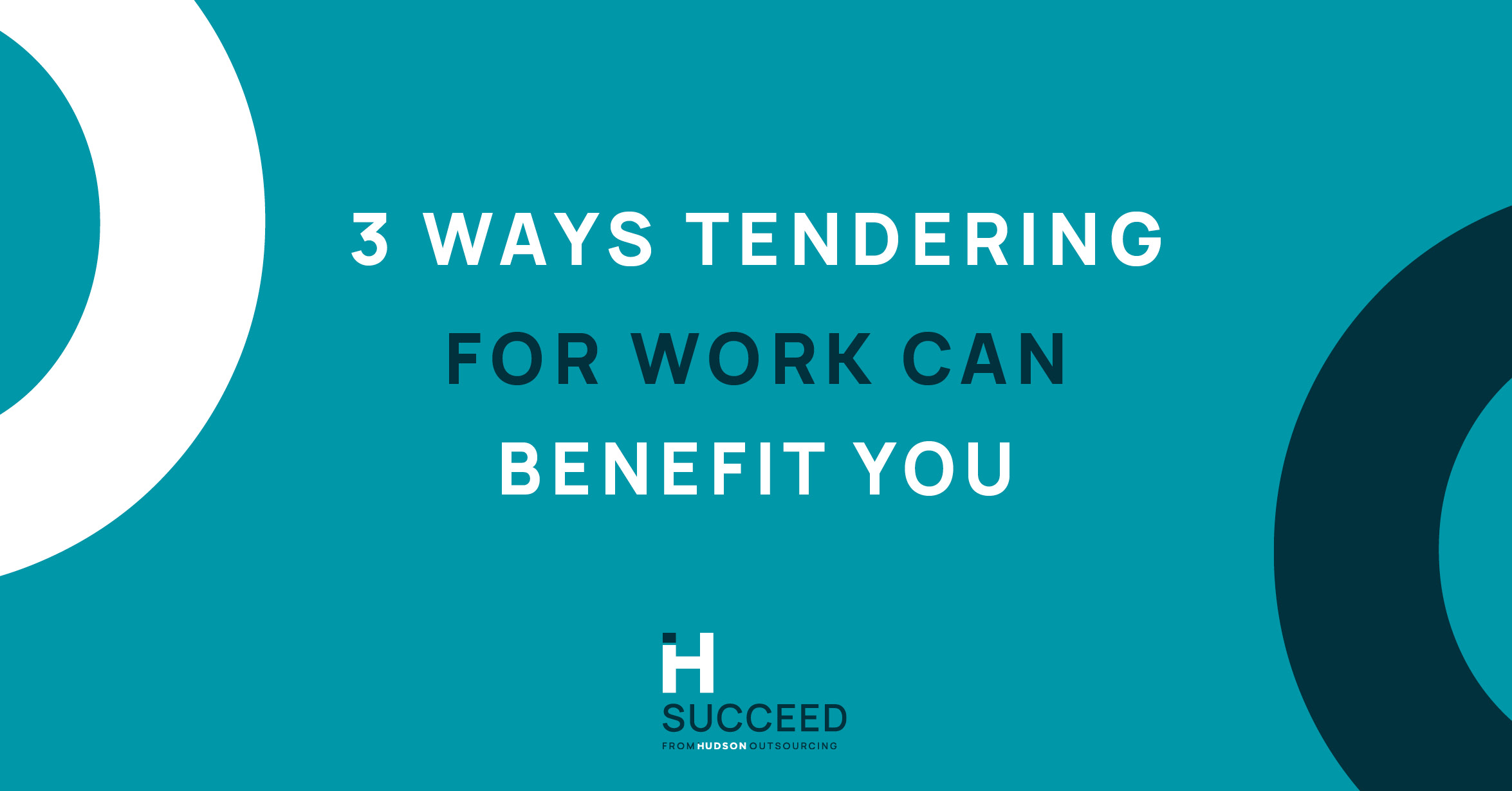3 Ways Tendering for Work Can Benefit Your Business
Tendering for work can be difficult if you don’t know what you’re doing. There’s a lot of confusing terminologies and it can be difficult to know where to begin with your tender response. The tendering process can be long and arduous with the average bid taking around 23 hours to complete.
Luckily for you, we are experts in tendering for work, having over 60 years of collective experience. Our Bid Writers have an 87% success rate. So, we thought we would share our knowledge to help get you on the path to success.
Here are three ways tendering for work can benefit your business
-
Secure a pipeline of work
Tendering for contracts can help you secure a pipeline of work. Securing a new business contract means that you will have a pipeline of work. Particularly if you secure a place on a Dynamic Purchasing System (DPS) or framework agreement. These tendering processes are often used within an array of sectors including construction and healthcare. The benefit of these is that they can run for years at a time. Some even have the possibility of an extension.
-
Guaranteed pay when tendering for work in the public sector
One of the biggest advantages of tendering for work is guaranteed payment. In the public sector, suppliers benefit from guaranteed pay upon winning a contract. This is because the Crown Commercial Service must pay contractors within 60-days of invoicing. They must do this to comply with the Prompt Payment Code. This is obviously a great benefit to your business, and it can take some of the pressure off, too.
-
Gain experience
If you’re a newly formed company, tendering for work is a great way to gain experience. This is particularly true if you’re able to gain a place on a framework or DPS. Buyers will require 2 – 3 case studies of past contracts you have delivered. They need to be within the last 3 – 5 years. They should be similar in scope and style to the one you’re applying for. Securing smaller contracts can help you build up that experience. The more experience you have, the bigger the contracts you can go for. The bigger bids you can go for, the bigger your business can grow.
It’s often advised that it’s common for buyers to ask to see at least two years’ worth of accounts when tendering, this is not always the case with smaller contracts and sometimes strong case studies can be used instead.
Remember these tips when tendering for work:
You want to make sure that your tender response is clear and the language is concise. If you use complicated language and long sentences, a buyer may lose what you’re trying to say. They then might not understand your point and you may lose marks. Keep sentences short and sweet.
Word/page/character counts are there for a reason. If a buyer thinks that a response needs a 1000-word answer, write a 1000-word response. Don’t go over and try not to write an answer that’s too short of the word count either.
-
Avoid overly technical jargon
Often, a buyer won’t be an expert in your industry, hence why they’ve put the contract out to tender. So, it’s important that you don’t use overly technical jargon. Use laymen terms were possible and explain processes in a step-by-step way if you can.
Formatting your response can help you subconsciously get in the reviewers’ good books. Breaking your text up with subheadings and bullet points can help. A buyer would rather see this than blocks of text. This can also help make sure that you have answered every aspect of the question. Tender questions are known for asking three questions in one.
-
Leave enough time for a bid review and proofreading
A common mistake that many suppliers make when tendering, is that they don’t leave enough time for proofreading. This is an important part of tendering for work. You want to ensure that your response is free of any grammatical and spelling errors. This may give off the impression of laziness and lack of attention to detail.
In summary
Tendering for work can have many advantages. These include securing a pipeline of work, guaranteed pay and gaining experience, helping your business grow.
Our services
Tender Writing
Once you’ve found the perfect bid for your business, send it our way. Our Bid Writers can take care of the whole thing for you they’ll even submit it on your behalf. They’ll let you know what they need from you, providing you with a full Tender Writing breakdown.
Tender Ready
Our Tender Ready 4-week programme is perfect for businesses that have never tendered before. A Bid Writer will work with you to ensure you have everything in place to tender successfully. They can also help you better understand the tendering process. Tender Ready offers your business:
- A 12-month subscription to one Hudson Discover.
- Access to Global Bid Directors and Senior Bidding Professionals.
- An Organisation-wide Bid library, including 3 case studies, 5 CVs and policies.
- Additional flexible benefits.
Tender Improvement
If you’ve been tendering but aren’t seeing success from your current efforts, our Tender Improvement package can help. Our Bid Team will assess your previous responses and tender documents. They will work with you to improve for future submissions. This package includes a 12-month subscription to a Hudson Discover portal and additional tendering development services.
Tender Mentor
If you’ve written your own tender response and need it double-checked for errors, Tender Mentor can help. A Bid Writer will proofread your work for any inconsistencies, grammar or spelling mistakes. They will also ensure it’s in line with the specification before you submit. This can help you formulate a winning submission.
Additional support
If you only need the assistance with PQQs or SQs we can help. Send the information over to us and we can provide you with a quote for the work involved.
Discover Elite
Upgrading to Discover Elite can help optimise your tendering efforts – even when you’re busy. Our two new time-saving tools can improve your competitor awareness and success rate when bidding for a contract.
The Ultimate Time Saver package offers your business:
- A maximum of five tender breakdowns per month.
- An annual subscription to a maximum of two Hudson Discover sector-specific portals. This option can help businesses that overlap two industries such as Healthcare and Technology, for example.
- Pre-market and award engagement notices monitored on your behalf.
- Buyer portal management, including registration, password management, downloading documents and assessing viability based on your bid or no-bid strategy.
- Weekly phone calls with your dedicated Account Manager to discuss viable tendering opportunities.
The Become a Pre-Bid Master package also includes:
- All of the above.
- Up to seven tender breakdowns per month.
- A Bid Strategy delivered by a Senior Bid Manager with a minimum of 5 years of experience. It will also be managed by our Global Bid Director.
Contact us to find out how we can help your business grow.
Find more helpful tips and advice in our blogs. We cover topics including:





